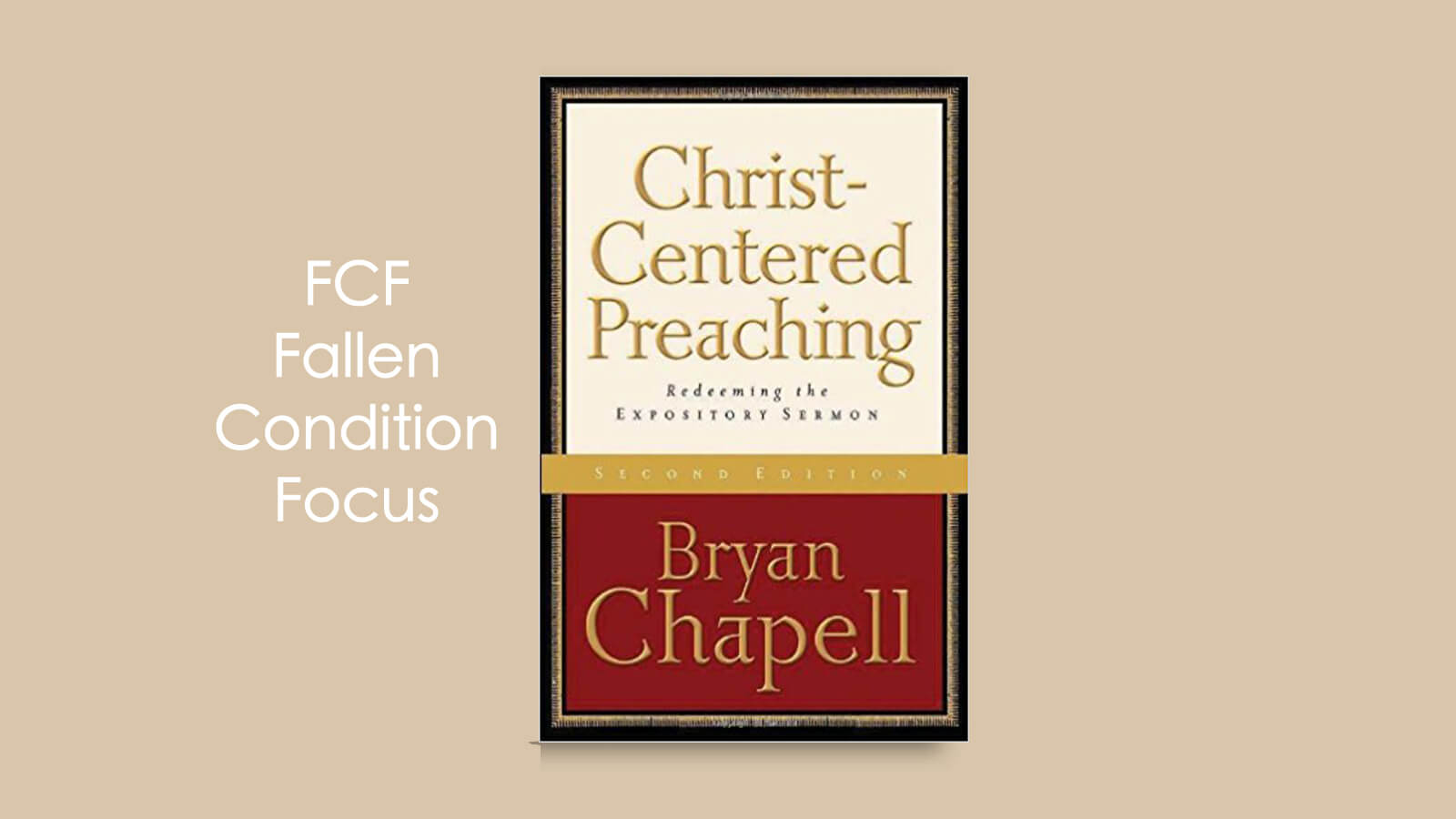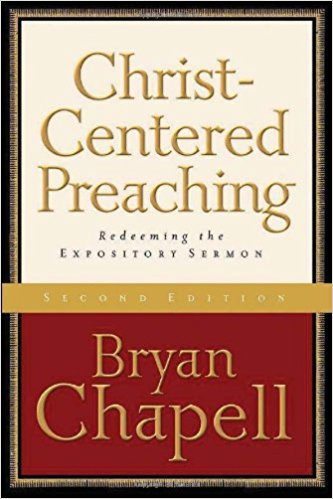
Fallen Condition Focus Essay
Submitted to Dr. Page Brooks of SUM Bible College & Theological Seminary.
If a minister of God’s word isn’t careful, sometimes he or she can miss a key component of writing a relatable and applicable sermon. Bryan Chappell, in his book Christ-Centered Preaching: Redeeming the Expository Sermon says that some sermons are missing the key element of the Fallen Condition Focus. The Fallen Condition Focus (FCF), as Chapel defines it, is “the mutual human condition that contemporary believers share with those to or about whom the text was written that requires the grace of the passage for God’s people to glorify and enjoy him (Chapell, 2018).”
What this means for those who are called to minister through interpreting and speaking the Word of God is they must not only interpret a passage, but they must also make it relatable to their congregation.
If a pastor or minister fails to include the FCF in a sermon, the congregation may fail to understand why the passage relates to their lives. The FCF is the personal part of the message. It completes the picture that painted by scripture. FCF is the combination of making the Sin factor known that comes into the text that relates us to the audience back in the biblical times and Grace Factor that Jesus Christ comes into give as a solution for that particular sin or fallen condition.
The example Chapel gives in the chapter, is of a former student who calls for advice because the sermon he taught fell flat, resulting in a congregation full of blank stares after he spoke on a Sunday morning. The student recounts the main points in the message.
After he was done, however, Chapell pointed out the student forgot to tell his congregation the “why” of the sermon. The former student had included great content, but no application. Explaining the “why” of a passage helps the congregation with their application and relating it to their own situations. As Chapel says, an FCF sermon “creates a listener’s longing for the Word and its solutions by identifying the biblical needs that the passage addresses (Chapell, 2018).”
Chapel says that while sermons are to be well-researched, looking at the origins of the passage and the FCF goes beyond just the nuts and bolts of a Greek lexicon and commentaries to instructing people on how they can transform their lives. When this happens, a congregation will not only learn, but be engaged in the process of learning God’s Word and its power to give their lives purpose.
Chappell says that when scripture is fully researched and gives proper application, it “exhorts as well as expounds because it recognizes that Scripture’s own goal is not merely to share information about God but to conform his people to the likeness of Jesus Christ. Preaching without application may serve the mind, but preaching with application results in service to Christ (Chappell, 2008).”
In applying the FCF to a passage, one example is Romans 8:28, which says “And we know that in all things God works for the good of those who love him, who have been called according to his purpose (Holy Bible, 2005).” FCF is that sin sometimes keeps us from being on purpose for God and from believing that he will bring out for the good. Grace factor that Christ comes in gives us purpose in live through the Holy Spirit God is working for the good in our lives.
Chapell in his book gives the formula for apply and exploring the Fallen Condition Focus of a passage as: “textual information (pre-sermon material) → addressing a textually rooted FCF + relevant textual application = sermon (Chappell, 2008).”
To speak on Romans 8:29, for example, a pastor might start out by giving background on Paul and teaching about Paul’s life as a Christian and how he suffered. He endured several beatings and imprisonments; he was no stranger to the pain of persecution (Wallace, 2004). Telling about Paul’s faithfulness during being beaten and persecuted is the background of the passage, as it speaks to why Paul writes this. Despite his pain and doubt, he saw God working.
To make this passage relatable, the pastor or minister must look not only why the passage was written but also look at the sin the passage addresses as a whole. People in the congregation listening to the message will still struggle with the same sin the passage is addressing. When this common factor of sin is addressed, the passage then takes on a familiar light. The underlying meaning of the passage is brought to light and people can see their familiar struggles highlighted in scripture. This should be the goal of every sermon.
Without application, people study or read a passage together or sit through an entire sermon, and think to themselves, “So what?” (Chappel, 2008). Some speakers or pastors might explain and present all the facts and background of a passage, but not move on to the application part. Chappell calls it a pre-sermon message. Chappell warns against this, saying: “A pre-sermon message merely describes the text. Such a “speech” may be accurate, biblically based, and erudite, but the congregation will know it falls short of a sermon even if the preacher does not (Chappel, 2008)
As we see in 2 Timothy 3:16, “All scripture is God-breathed and useful for teaching, rebuking, and correcting and training in righteousness (Holy Bible, 2005).” Chappel explains that “God expects scriptural truths to transform his people. Faithful preaching does the same. The preacher who identifies a passage’s FCF for a congregation automatically moves the people to consider the Bible’s solutions and instructions for contemporary life (Chappel, 2008)”
To make this relatable, an anecdote about staying faithful to God despite the desire to doubt God’s purpose and plan in the midst of hopeless situations, can make this passage relevant. If a person lets doubt God’s goodness creep into their life while they are experiencing hardship, it can keep a person from living for God and believing that God will bring out the good from tough situation.
Doubting God is a person’s fallen condition. When doubt is seeded in a believer, that person can lose focus on their purpose. When teaching on this passage, this is a key element is to bring the biblical truths out and then teaching and showing how the passage relatable to the audience. In this passage it would be to remind people that through grace, Christ gives people purpose to live through the Holy Spirit and God is present and working in their lives.
In conclusion, when ministers ensure the FCF is applied to a sermon, the message of the sermon is Christ-centered (Chapell, 2018, 54). Chapell points out that, as humans, people need to be reminded they are fallen and in need of Christ. If people lose focus of how far they are from Christ without any intervention in the form of Jesus Christ, they lose site of the fact they are in need of a savior. Everyone needs a savior, but many people live like they don’t. They have forgotten.
References
Chapell, B. (2018). Christ-Centered Preaching: Redeeming the Expository Sermon. Grand Rapids: Baker Academic.
Holy Bible: New International Version. (2005). Zondervan.
Wallace, D. B. (2004, June 24). Bible.org. Retrieved from Bible.org: https://bible.org/article/do-all-things-really-work-together-good-romans-828-its-context


